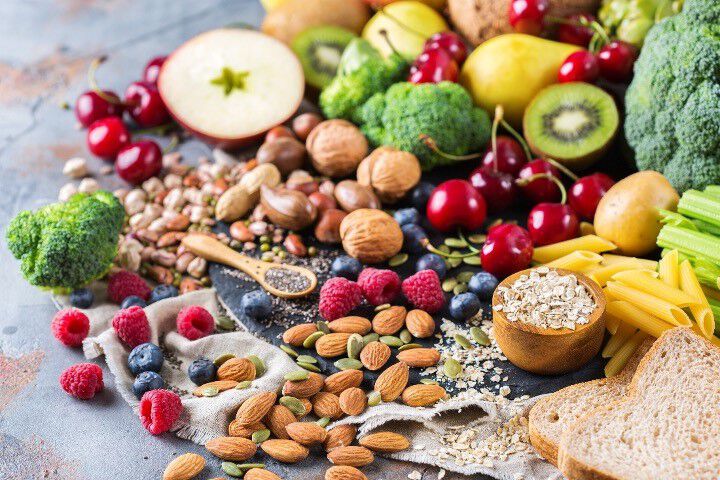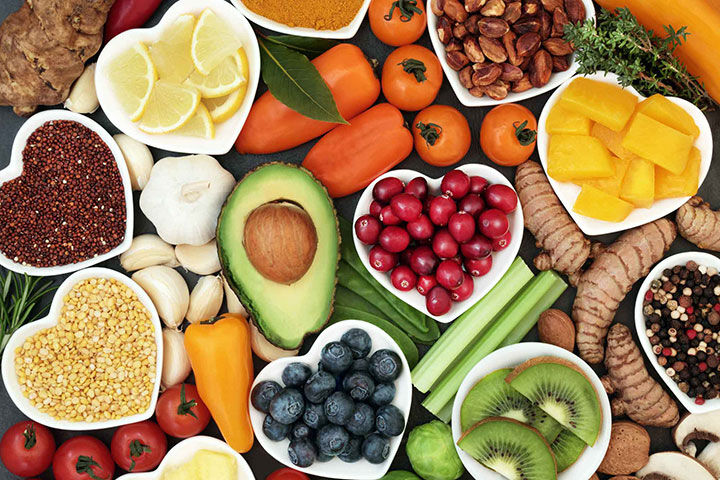Digestive Support
What Are Probiotics & Why Do You Need Them?

Inside your digestive tract, there is an ecosystem of bacteria that battle it out every day. Different types of bacteria compete against each other to live in your intestines, vying for food and space. You might not be aware of all this going on, but once in a while when that system goes out of whack–you know.
So, what happened? Our complex digestive system is full of microorganisms like bacteria and yeasts – all working in our digestive ecosystem. Occasionally things can get out of balance, but the good news is there are things you can do to support your microbiome and overall digestive health!
What are probiotics?
Probiotics are microorganisms, such as bacteria, that provide health benefits.* The word probiotic comes from the words “pro” and “biota,” meaning "for life." When you consume probiotics, you are helping to create a healthy balance of bacteria in your gut.*
There are several different types of probiotics and you may have even heard of some of them like Lactobacillus and Bifidobacterium. There are some special types of probiotics, such as Bacillus, which are “spore-forming probiotics” and are often used in gummies because they are heat resistant.
Probiotics are named by genus, species, and sometimes strain so you will see them listed with a couple of names and sometimes even a number at the end. For example: Bacillus Subtilis DE-111. Bacillus is the genus, Subtilis is the species, and DE-111 is the strain.
Probiotics are measured in CFUs, or colony-forming units, per serving. Probiotic dosages are often in millions or billions of CFUs. While billions may seem like a large quantity of probiotics to consume, remember that bacteria are very small and you are still only consuming milligram quantities!
What are the benefits of probiotics?
Probiotics can have many benefits and new studies are being published all the time on what these little microorganisms can do. However, most probiotics focus on digestive health and taking probiotics helps provide beneficial bacteria to your gut and supports intestinal balance.* But did you know 70% of your immune system lives in your digestive tract? So some probiotics can also support immune health!* The specific health benefits depend on the type of probiotic.
Where can you find probiotics?
There are a couple of different ways to add probiotics to your day using either food or supplements.
Foods with probiotics
You can find probiotics in fermented foods like yogurt, kimchi, kombucha, and kefir. Note, not all yogurts have probiotics – you’ll want to look for names of probiotics listed on the label such as L. bulgaricus or S. thermophilus.
Probiotic supplements
One easy way to add probiotics to your day is through probiotic supplements. You can find probiotics in powders, capsules, and gummies.
- PB8™ Original Probiotic Supplement includes 8 strains of probiotics with 14 billion CFU+ per serving to help support digestive health.*
- PB8™ Immune System Support* includes 10 strains of probiotics with 10 billion CFU+ per serving to help support the immune system and provides good bacteria to the digestive tract to support digestive health.*
Probiotic gummy supplements
If you prefer gummies, vitafusion offers tasty probiotic gummy options!
- vitafusion Probiotic - provides five billion CFUs per serving of two probiotic strains in mouthwatering raspberry, peach, and mango flavors so you can provide good bacteria to your digestive tract.*
- vitafusion Fiber Well + Probiotic – with 3 grams of fiber and 800 million CFU B. Coagulans probiotic in every 2 gummy serving, these delicious blue raspberry, cherry, and orange flavors help support regularity and digestive health.*
What are prebiotics?
You may have heard about prebiotics as well. If you are confused, don’t worry – here’s the difference. Prebiotics help nourish the good bacteria in your gut.* Essentially, prebiotics help feed and support probiotics. There are many types of prebiotics, but the most well-known is fiber. Not all types of fibers are food sources for probiotics though, so if you’re looking for a supplement with prebiotics, be sure to read the label!
vitafusion offers a few fiber focused supplements:
- vitafusion Fiber Well – with 5 grams of prebiotic fiber in a 2-gummy serving, Fiber Well has delicious natural peach, strawberry, and berry flavors to support regularity and digestive heath.*
- vitafusion Fiber Well Fit - with 4 grams of prebiotic fiber in each tasty serving to help maintain and support your digestive health, along with 6 B vitamins to support energy metabolism.*
Probiotics are a “Pro” for your digestive health!
Digestive health is important for all of us! Adding fermented foods or a probiotic supplement can provide good bacteria to your digestive tract, and adding prebiotic foods or supplements can help nourish the good bacteria already in your system.* With friendly bacteria on board, you can feel confident that you’re taking steps to support your overall health.*
Brought to you by the vitafusion nutrition experts.
+At time of manufacture.



